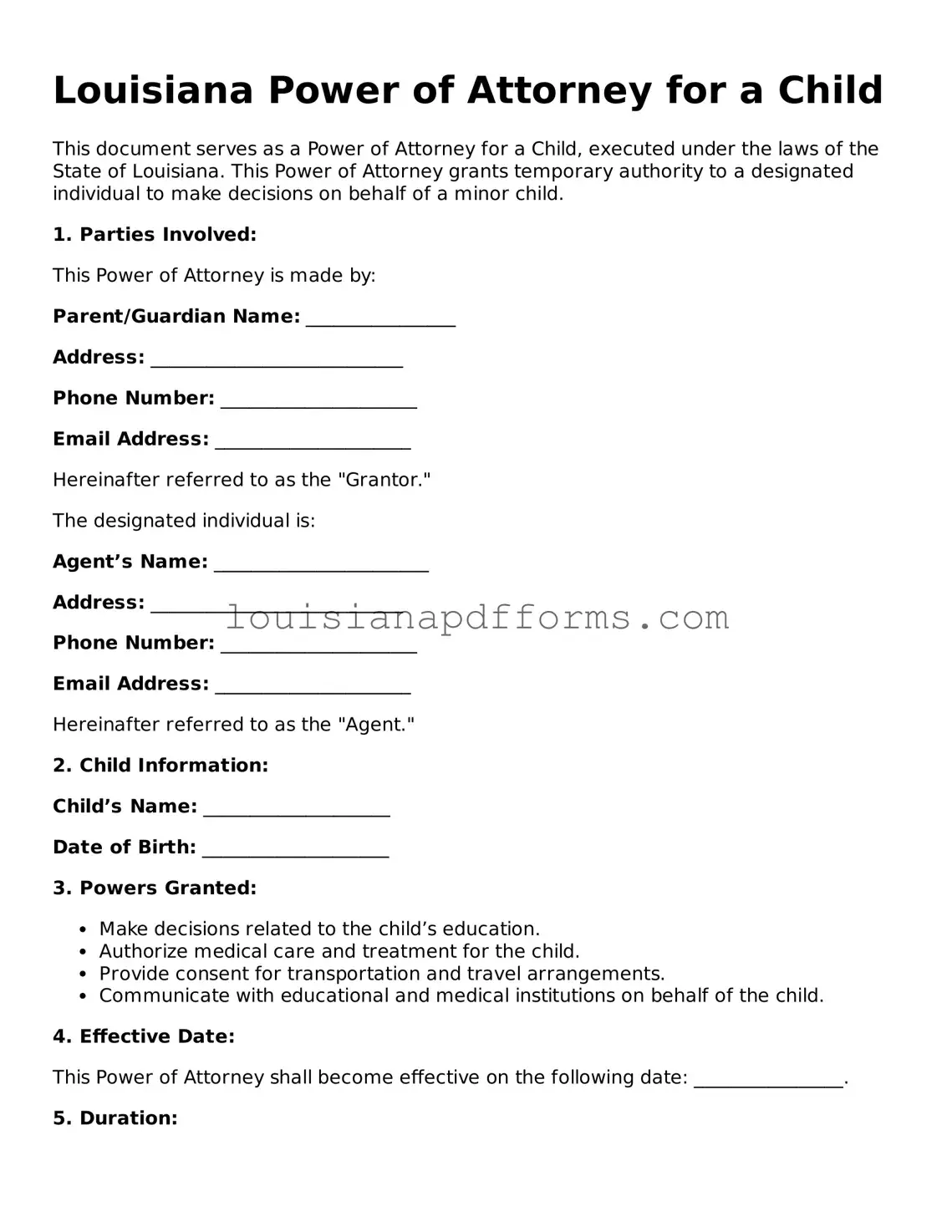Louisiana Power of Attorney for a Child Form
The Louisiana Power of Attorney for a Child form is a legal document that allows a parent or guardian to grant another individual the authority to make decisions on behalf of their child. This form can be particularly useful in situations where the parent is unavailable or unable to care for the child temporarily. By using this document, parents can ensure that their child's needs are met while they are away.
Access My Document Now

Louisiana Power of Attorney for a Child Form
Access My Document Now

Access My Document Now
or
Free Power of Attorney for a Child
You’re halfway through — finish the form
Edit, save, and download your completed Power of Attorney for a Child online.